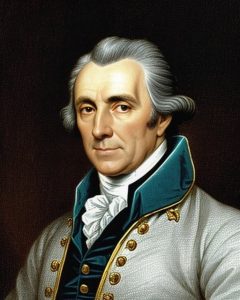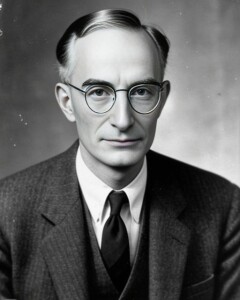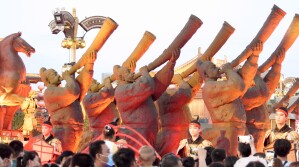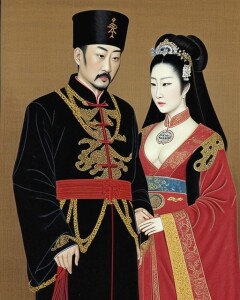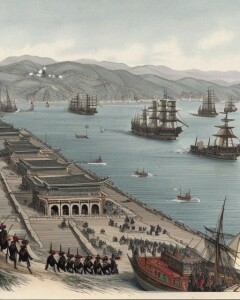The lobby of the Royal Orchid Sheraton Hotel in Bangkok is a stunning testament to elegance and luxury, welcoming guests into a world of refined sophistication and Thai hospitality. Here’s a detailed description of what you can expect when you step into this exquisite hotel lobby: As you approach the Royal Orchid Sheraton Hotel, the …
Category: Events
Harmony in Neutrality: Exploring Ambivalent Spiritual Beings Across Cultures
Ambivalent or neutral spiritual beings refer to entities that exist in the realm of spirituality but do not align themselves with either positive or negative forces. These beings are often depicted as having a sense of neutrality, lacking any strong inclination towards good or evil. They are known to possess a balance of energy and …
Good Friday: A Day of Reflection, Repentance, and Spiritual Contemplation
Good Friday is a significant day observed by Christians worldwide, commemorating the crucifixion and death of Jesus Christ. It falls on the Friday preceding Easter Sunday and holds immense religious and cultural importance. Good Friday is a somber and reflective day for Christians, as it marks the culmination of Jesus’ earthly journey and the ultimate …
Echoes of Freedom: The Enduring Legacy of Patrick Henry’s Call to Arms
“Give me liberty or give me death” reverberates as a resounding declaration credited to Patrick Henry, a true luminary among the founding fathers of the United States. These words, etched in history, emanated from the depths of his soul during a momentous speech at the Second Virginia Convention on March 23, 1775. In that electric …
Exploring the Enchantment: Unveiling Polynesia’s Rich Cultural Tapestry
Imagine a vast expanse of crystal clear waters, dotted with over 1,000 stunning islands stretching across 15 million square kilometers in the Pacific Ocean. This is Polynesia, a region steeped in tropical beauty and rich cultural heritage. The name itself, derived from the Greek words “poly” meaning many, and “nesos” meaning islands, perfectly captures the …
The Silk Road: A Pathway of Exchange and Cultural Encounter
The Silk Road, an expansive network of trade routes spanning Asia, holds immense historical significance. It acted as a conduit for cultural exchange, commercial activities, and intellectual discussions between the East and the West. This paper delves into the intricate nature of the Silk Road, exploring its origins, routes, and lasting impact on global civilizations. …
Navigating Globalization: Opportunities and Challenges for Social Institutions
The dynamic interplay between the global economy and society offers a tapestry of possibilities and hurdles for social institutions to navigate. Globalization serves as a double-edged sword, ushering in economic prosperity and cross-cultural fertilization while simultaneously sowing seeds of displacement, detachment, and rivalry that can erode local customs and values. This study delves into the …
The Erosion of Public Trust in Institutions: Challenges and Consequences
Scandals, corruption, and perceived incompetence within various institutions, including government, business, and the media, have significantly eroded public trust and confidence. This loss of trust undermines the legitimacy and effectiveness of institutions, further contributing to their erosion. This paper examines the factors contributing to the erosion of public trust in institutions and explores the far-reaching …
The Impact of Economic Inequality on Social Institutions in America
Economic inequality in America is like a storm cloud looming over our social institutions, casting shadows of doubt, division, and missed opportunities within communities. This study delves into the intricate web of consequences stemming from the ever-widening economic gap, from fraying social bonds to shaking the foundations of trust in crucial establishments like government and …
Journey Through History: Exploring Camp Russell, Home of Heroes
Camp Russell During World War II the 1st and 2nd Divisions of the United States Marine Corps camped in this area from June 1942 to October 1943. The 2nd Infantry Regiment was based here at Camp Russell, the 6th Infantry at Camp MacKay across the highway on Whareroa Farm and the 8th Infantry at the …
Leap Year in the USA: Calendar Tricks, Celestial Dance, and the Quirky Tradition of Proposing Playfully
The occurrence of leap year in America unfolds at intervals of four years, presenting itself as a captivating phenomenon deeply intertwined with the Gregorian calendar. This concept, in its essence, aims to harmonize the span of the calendar year with that of the solar year, representing the time taken by Earth to complete its orbit …
Leap Year in Japan: Floating Troubles and Business Bounties on the 29th of February
The commemoration of a leap year in Japan may not hold as much prominence as some other culturally significant festivals. However, there are a few intriguing customs and traditions associated with this additional day that make it truly distinctive. One such tradition is known as “nagashi bina,” which can be loosely translated as “floating dolls.” …
Raguel’s Resolve: Guardian of Celestial Justice and Harmony
Archangel Raguel, known widely as the angel of justice, assumes a significant and irreplaceable role in the celestial realms. As a celestial being, Raguel bears the weighty responsibility of ensuring fairness and maintaining harmony among the angels and other divine entities. The name Raguel holds deep meaning, denoting “Friend of God” to emphasize the angel’s …
Groundhog Day: Shadows, Shenanigans, and Six More Weeks of Side-Splitting Winter
The annual celebration of Groundhog Day, which takes place each year on the 2nd of February, holds significant importance mainly in North America. Originating from ancient weather lore brought by German settlers to Pennsylvania between the 18th and 19th centuries, this unique and unconventional tradition centers around the emergence of a groundhog from its burrow …
J. Robert Oppenheimer: Architect of the Atom, Weaver of Scientific Ethics
J. Robert Oppenheimer, a prominent American physicist widely recognized as the “father of the atomic bomb,” played a pivotal role in the development of nuclear weapons during the turbulent era of World War II. Born on April 22, 1904, in the vibrant city of New York, Oppenheimer exhibited remarkable intellectual prowess from a young age. …
Exploring the Wonders of Datang Everbright City in Xi’an
Datang Everbright City in Xi’an presents a captivating destination that effectively showcases the rich history and contemporary developments of China. Tucked away within the ancient city of Xi’an, this vibrant cultural complex offers a delightful fusion of traditional architecture and cutting-edge technology. As soon as you set foot here, you are instantly whisked away to …
Echoes of Desolation: Unveiling the Tragedy of the Holodomor
The Holodomor, or the Ukrainian famine of 1932-1933, holds a stark place in Ukrainian history. This devastating event was orchestrated by the Soviet Union, specifically under Joseph Stalin’s leadership, with the intention of suppressing Ukrainian nationalism and enforcing agricultural collectivization. The policies implemented during this distressing period resulted in the loss of countless Ukrainian lives, …
Revolutionizing Roles: The Dynamic Journey of Russian Women in Communist Society
Russian women played a significant and transformative role in Communist society, undergoing remarkable changes in their social, economic, and political status. The Communist regime aimed to establish gender equality, providing women with unprecedented opportunities that were previously inaccessible. In the early years of the Soviet Union, women were actively encouraged to enter the workforce, defying …
Breaking Chains: China’s Journey from Empire to Republic
The transition of China away from the imperial system stands as a momentous and transformative event that arose from a convergence of compelling factors. Essentially, the emergence of revolutionary ideas and a strong desire for modernization ignited an intense longing for change. Throughout the 19th century, as the Qing Dynasty grappled with a series of …
Unveiling the Shadows of the Past: The Second Opium War – Clash of Empires in the 19th Century
Transport yourself back to the mid-19th century, where an epic clash unfolded between civilizations in the form of the Second Opium War, famously known as the Arrow War. This captivating conflict spanned from 1856 to 1860, pitting the mighty Qing Dynasty of China against a coalition of Western powers, spearheaded by Britain and France. At …
The First Opium War: A Clash of Empires and the Battle for Control
Transport yourself back to the early 19th century and bear witness to a significant clash between two formidable forces – China and the British Empire. This momentous struggle, commonly known as the First Opium War, unfolded from 1839 to 1842 and left a lasting impact on their relationship. At the heart of this conflict was …
Okinawa Chronicles: Navigating Centuries of Culture and Valor
Prepare to be captivated by the riveting tale that unravels the history of Okinawa, a mesmerizing journey that stretches across centuries and is shaped by a tapestry of cultures and a tumultuous past. Nestled in the southernmost corner of Japan, Okinawa boasts a captivating and diverse history that sets it apart from the mainland. Embark …
Sexpionage Unveiled: The Allure and Intrigue of Intimate Espionage
The fusion of “sex” and “espionage” gives rise to the captivating concept of sexpionage, unearthing a realm of mystery where intimate relationships evolve into formidable tools for gathering intelligence and manipulating outcomes. Throughout the course of history, intelligence agencies and agents have embraced this clandestine practice in their pursuit of sensitive information extraction, compromising targets, …
Journey to Tranquility: Exploring the Twofoot Family Hobbit Home – A Haven of Warmth, Wonder, and Whimsy
Step into the realm of the Twofoot Family Hobbits, where you are transported to a whimsical world brimming with comfort and tranquility. Upon entry, you are greeted by a warm and inviting atmosphere, courtesy of a rustic stone fireplace crackling with a cozy fire. The air carries the earthly scent of oak beams, harmonizing with …
Bilbo’s Home at Bag End: A Hobbit Haven of Heroic Tales and Cozy Comforts
Bilbo Baggins, a character adored by countless fans, emerges from the pages of J.R.R. Tolkien’s renowned fantasy novel, “The Hobbit.” As a hobbit, an unassuming and diminutive creature, he finds solace and contentment in the peace of his cozy hobbit hole in the idyllic Shire. However, Bilbo’s uneventful life takes an unexpected turn when the …
The Samwise Gamgee Hobbit House: Where Fantasy Meets Home, and Magic is Woven into Every Corner
Samwise Gamgee is a beloved character from J.R.R. Tolkien’s epic fantasy series, The Lord of the Rings. As Frodo Baggins’ loyal and steadfast companion, Samwise, also known as Sam, plays a crucial role throughout the story. With his unwavering loyalty, strength, and resilience, Sam is often seen as the unsung hero of the series. From …
The Green Dragon: A Culinary and Cinematic Odyssey in the Heart of Hobbiton
Nestled within the enchanting Hobbiton Movie Set, the Green Dragon Inn effortlessly transports visitors into the captivating realm of J.R.R. Tolkien’s Middle-earth. This iconic establishment, situated amidst the picturesque countryside of Matamata, New Zealand, beckons ardent admirers of The Lord of the Rings and The Hobbit trilogies. Stepping across its threshold, guests are immediately greeted …
Hobbiton’s Flourish: Unveiling the Magic of The Mill at the Movie Set
The Mill at the Hobbiton Movie Set is a charming and iconic structure that holds a special place in the hearts of fans of J.R.R. Tolkien’s “The Lord of the Rings” and “The Hobbit” series. Located in Matamata, New Zealand, this meticulously crafted mill is an integral part of the magical world of Middle-earth brought …
A Matter of Perspective: Exploring the Enchanting Hobbiton Movie Set Tour in New Zealand
The Hobbiton Movie Set Tour in New Zealand is an extraordinary experience that transports visitors into the enchanting world of J.R.R. Tolkien’s Middle-earth. Nestled in the rolling hills of the picturesque Waikato region, this meticulously crafted film set brings to life the whimsical village of Hobbiton from the renowned “Lord of the Rings” and “The …





